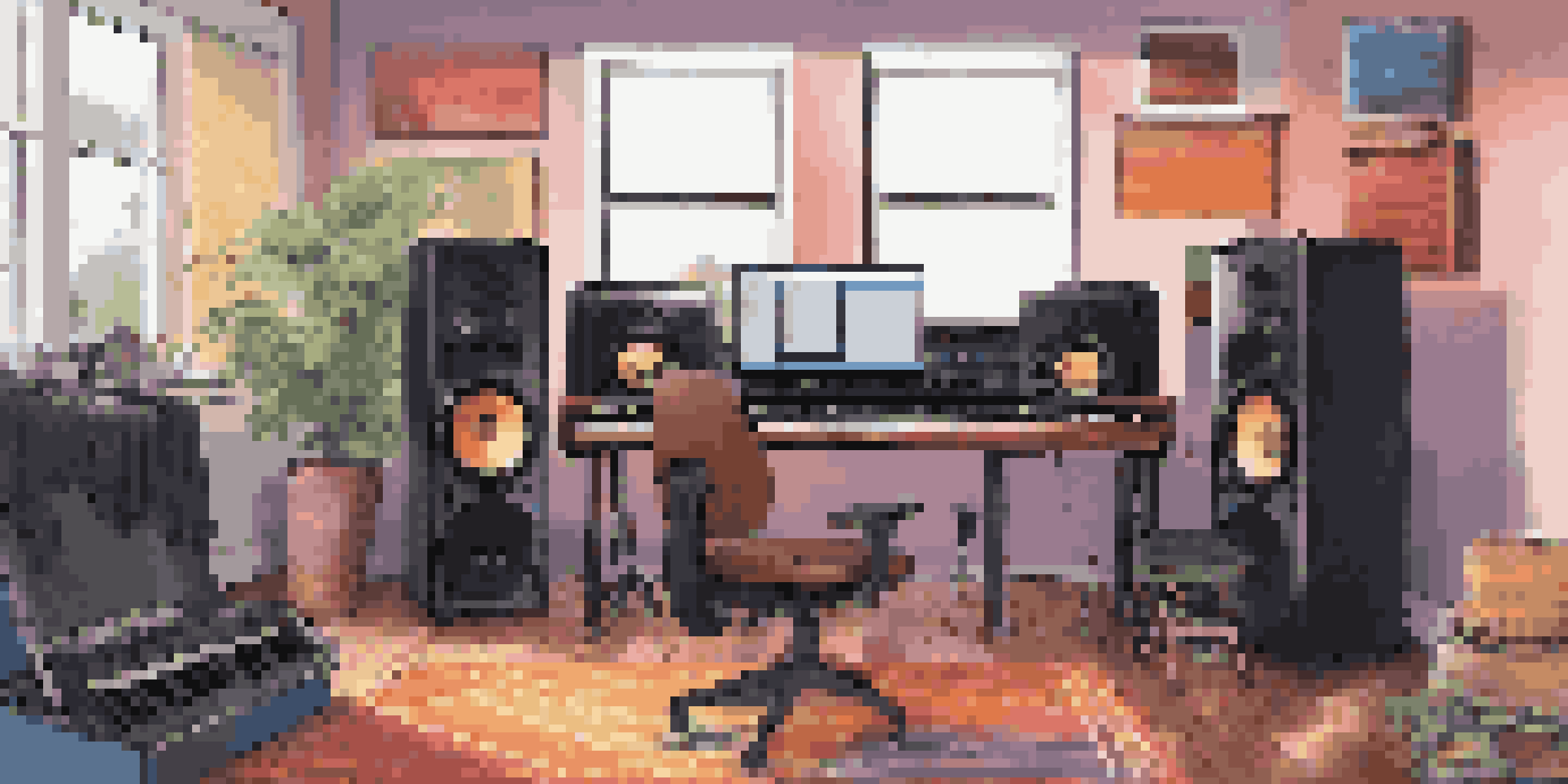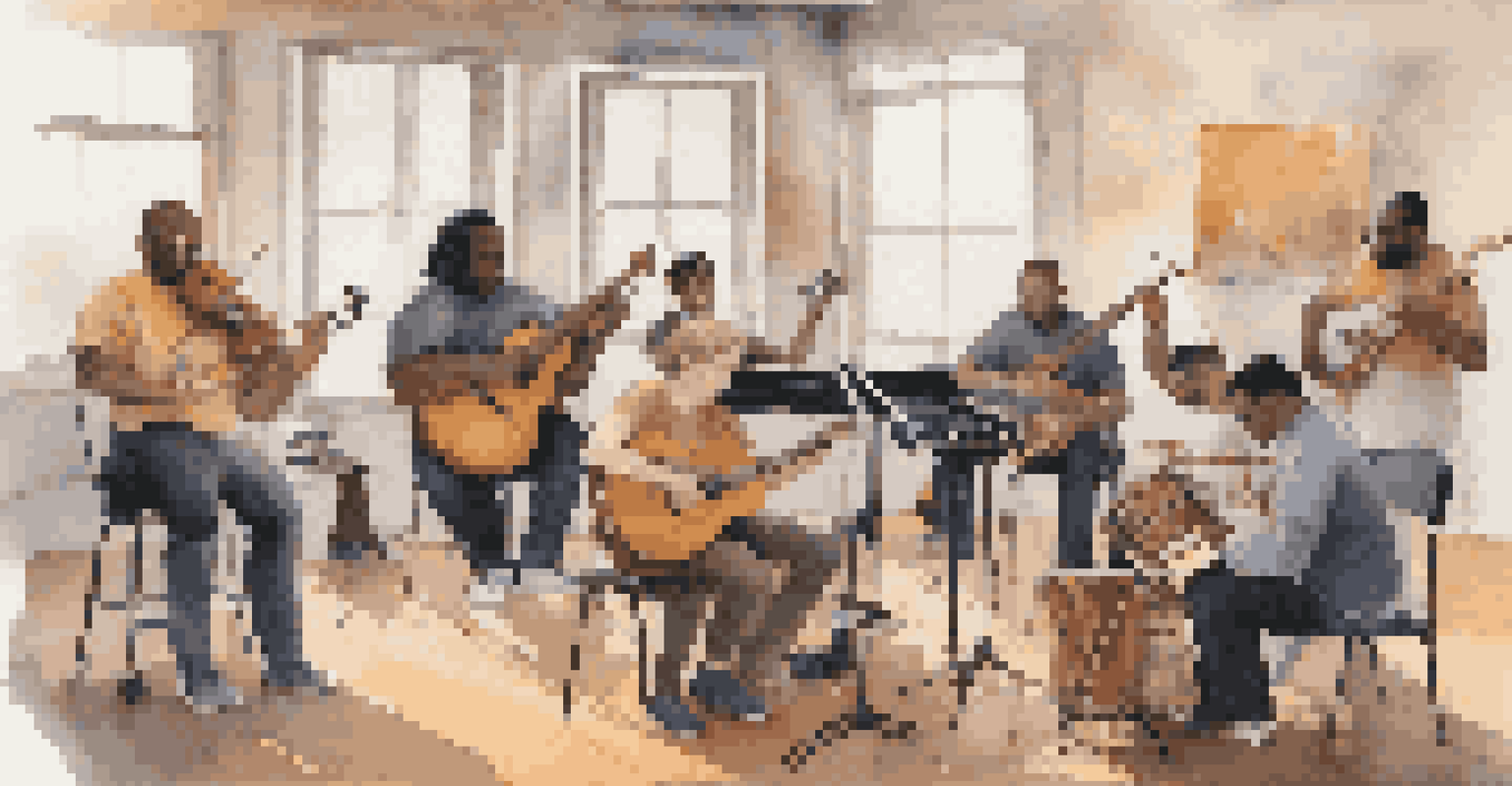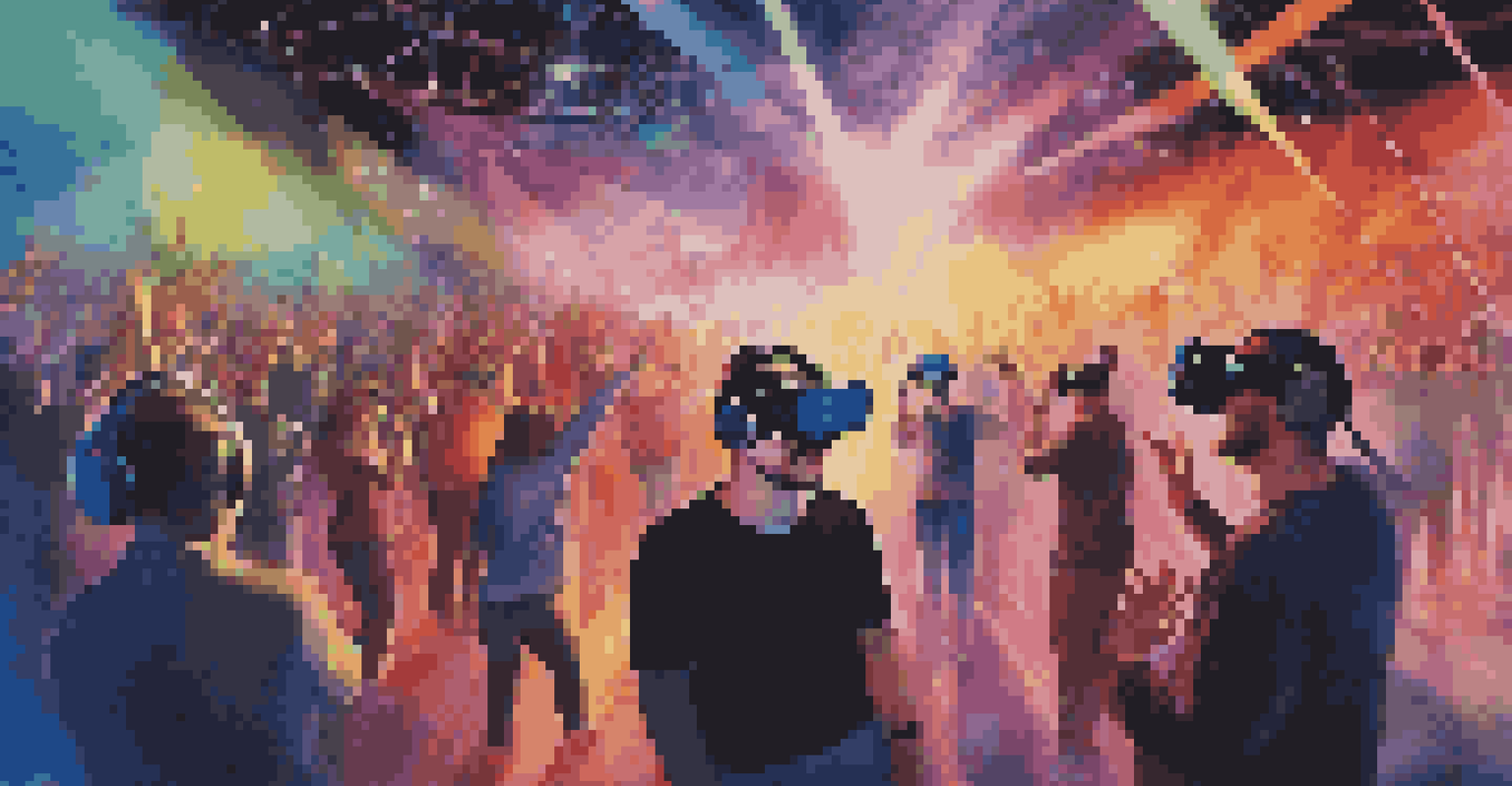How Technology is Making Music More Inclusive for Everyone

The Rise of Accessible Music Creation Tools
In recent years, music creation tools have become more accessible than ever. Software like GarageBand and FL Studio allows anyone, regardless of their background, to create music with ease. This democratization of music production enables aspiring musicians to express themselves without the need for expensive equipment or formal training.
Music is the shorthand of emotion.
Moreover, these tools often come with intuitive interfaces and built-in tutorials, making it easier for beginners to get started. For instance, a teenager with just a laptop can produce a full track, something that would have required a professional studio just a decade ago. This shift is crucial in fostering a diverse range of voices in the music industry.
As technology continues to evolve, we can expect even more innovations that cater to different skill levels and styles. This not only empowers individual musicians but also enriches the music landscape with fresh perspectives and sounds.
Adaptive Instruments for Diverse Needs
Adaptive instruments are changing the game for musicians with disabilities. Companies are designing instruments that can be played using alternative methods, such as eye-tracking technology or touch-sensitive pads. These innovations open up musical opportunities for those who may have struggled with traditional instruments.

For example, the MISA Digital Guitar allows users to strum and play music using simple gestures, making it accessible for individuals with limited mobility. This not only enhances the experience for musicians but also encourages collaboration among diverse groups, creating a richer musical community.
Music Tools Are More Accessible
Recent advancements in music creation software enable anyone to produce music without expensive equipment or formal training.
By addressing the unique challenges faced by musicians with disabilities, the music industry is becoming more inclusive. As adaptive instruments gain popularity, we can expect to see a broader spectrum of creativity and talent emerge.
Online Platforms Connecting Musicians Globally
The internet has transformed how musicians connect, collaborate, and share their work. Platforms like SoundCloud and Bandcamp allow artists from all over the world to showcase their music, breaking geographical barriers. This interconnectedness fosters a sense of community and enables musicians to learn from one another.
Technology is best when it brings people together.
Additionally, these platforms often feature user-friendly interfaces that make it easy for anyone to upload their tracks, regardless of their technical skills. A singer-songwriter in a small town can gain international recognition, all thanks to the power of online music distribution.
As more artists embrace these platforms, we witness a melting pot of genres and influences. This diversity enriches the music scene and inspires new collaborations, pushing the boundaries of creativity.
The Role of Social Media in Music Discovery
Social media has become a vital tool for music discovery, allowing listeners to find new artists and genres effortlessly. Platforms like TikTok and Instagram have propelled unknown musicians into the spotlight, demonstrating the power of viral content. A catchy song can quickly become a sensation, providing opportunities for artists who might otherwise go unnoticed.
Moreover, social media enables musicians to engage directly with their fans, creating a sense of community and loyalty. Fans can share their favorite tracks, attend virtual concerts, and even participate in challenges, making music a shared experience.
Social Media Boosts Artist Visibility
Platforms like TikTok and Instagram allow unknown musicians to gain recognition through viral content and direct fan engagement.
This level of interaction not only boosts artists' visibility but also encourages a diverse range of musical styles to thrive. As we continue to navigate the digital age, social media will play an increasingly significant role in shaping the future of music.
Virtual Reality and Immersive Music Experiences
Virtual reality (VR) is revolutionizing how we experience music, offering immersive environments where fans can enjoy live performances from the comfort of their homes. With VR headsets, concert-goers can feel as if they are in the front row, experiencing the energy of a live show without the physical limitations of distance or mobility.
These immersive experiences can also cater to individuals with disabilities, providing access to concerts that may have been physically challenging to attend. This technology not only enhances enjoyment but also fosters inclusivity, allowing everyone to partake in the thrill of live music.
As VR technology evolves, we can expect to see more creative ways to engage with music, making it accessible to a broader audience. This opens the door to innovative collaborations and experiences that redefine what it means to enjoy music.
The Impact of Music Streaming on Accessibility
Music streaming services like Spotify and Apple Music have made it easier for listeners to access a vast library of music from around the world. This convenience has significantly lowered the barriers to entry for discovering new artists and genres, allowing users to explore music that resonates with them personally.
Additionally, many streaming platforms offer curated playlists and recommendations based on users' listening habits, further enhancing their musical journey. This personalization can expose listeners to underrepresented artists and genres, promoting a more inclusive music scene.
Tech Enhances Music Inclusivity
Innovative technologies like adaptive instruments and virtual reality are creating more inclusive experiences for musicians and audiences alike.
As streaming continues to dominate the music industry, it plays a crucial role in shaping listeners' tastes and preferences. This level of accessibility allows for a richer, more diverse musical landscape that reflects a wide array of cultural influences.
Educational Resources Empowering Aspiring Musicians
Technology has made music education more accessible than ever, with online courses and tutorials available for learners of all ages and backgrounds. Websites like YouTube and platforms like Coursera offer free resources to help aspiring musicians hone their skills, regardless of their location or financial situation.
These educational resources allow anyone to learn at their own pace, making music education more personalized and adaptable. Whether it's a beginner learning to play guitar or an advanced student diving into music theory, there’s something available for everyone.

As more people access these resources, we can expect to see a new generation of talented musicians ready to share their voices with the world. This emphasis on education not only enriches the music community but also fosters a culture of lifelong learning and creativity.
The Future of Music Inclusivity Through Technology
Looking ahead, the future of music inclusivity is bright, thanks to the rapid advancements in technology. As new tools and platforms continue to emerge, we can expect even greater opportunities for musicians from all walks of life to express themselves. This evolution is crucial in ensuring that diverse voices are heard and celebrated within the music industry.
Moreover, as society increasingly values inclusivity, the music industry is likely to embrace these changes wholeheartedly. The collaboration between artists, technologists, and advocates will pave the way for a more equitable music landscape, breaking down barriers that have existed for too long.
Ultimately, technology is not just changing how we create and consume music; it’s also shaping a more inclusive future where everyone can participate in the joy of making and experiencing music.